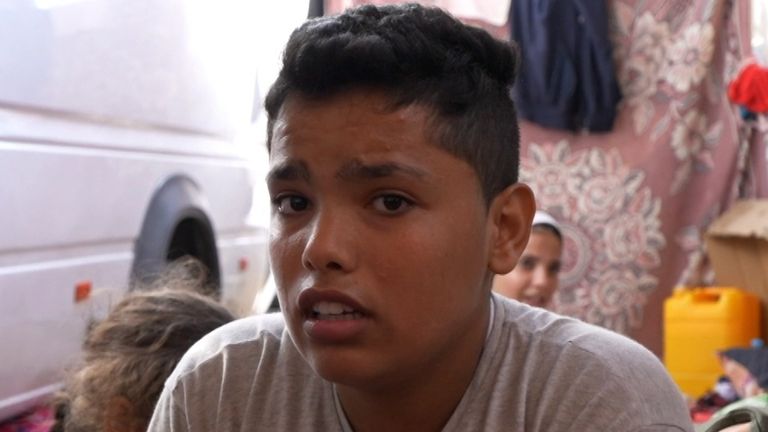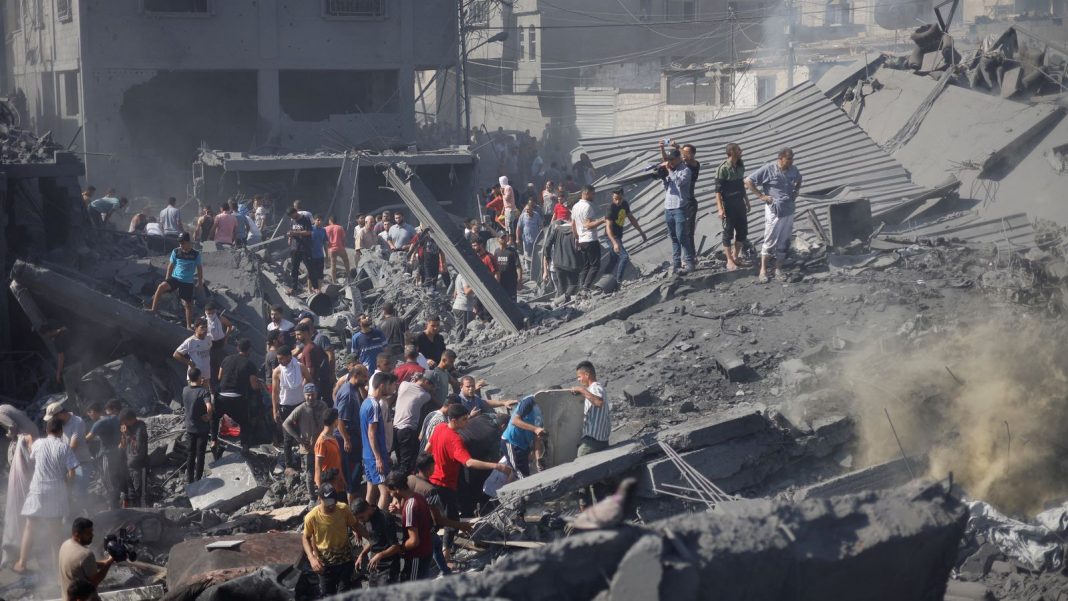Earlier this week, in comments that angered Israel, UN Secretary General Antonio Guterres said Hamas’s attacks cannot “justify collective punishment” of the Palestinian people.
Collective punishment is illegal under international law, because it directly affects civilians.
Critics of Israel’s actions say cutting off power and water to Gaza is what this amounts to.
The prohibition of collective punishment in international humanitarian law dates back to the Hague Convention (II) of 1899, which has been ratified by the UK.
That states “[no] general penalty, pecuniary or otherwise, can be inflicted upon the population on account of the acts of individuals for which they cannot be regarded as jointly and severally responsible”.
The Fourth Geneva Convention – which has also been adopted by countries including Israel, the UK and the US – includes a similar, but more specific prohibition.
That says “[no] protected person may be punished for an offence he or she has not personally committed.
“Collective penalties and likewise all measures of intimidation or of terrorism are prohibited.”
Follow live: Israeli tanks and troops cross into Gaza
Palestinians react at the site of Israeli strikes on houses in Khan Younis in the southern Gaza Strip
How has the term been used?
The UN chief used the term on Tuesday after telling the security council “the Palestinian people have been subjected to 56 years of suffocating occupation”.
Mr Guterres said: “The grievances of the Palestinian people cannot justify the appalling attacks by Hamas.
“And those appalling attacks cannot justify the collective punishment of the Palestinian people.”
He later said the remarks had referred to “all aspects of the Middle East crisis” – adding that he was “shocked by the misinterpretations” of his words.
Please use Chrome browser for a more accessible video player

2:36
Calls for UN chief to resign
The term was also used in a letter signed by more than 150 Muslim Labour councillors urging party leader Sir Keir Starmer to call for a ceasefire in the Middle East.
“No nation, no people or community should have to endure collective punishment and the same should be the case for the Palestinian people,” the letter sent on Wednesday read.
Sir Keir has echoed the language of US secretary of state, Antony Blinken, and Prime Minister Rishi Sunak, supporting so-called “humanitarian pauses” in order for aid – rather than a full ceasefire.
Read more:
Off-duty British-Israeli soldier flung back seven Hamas grenades before eighth blew up in his hand
Family buries British mother and daughters who were killed in militant attack
Please use Chrome browser for a more accessible video player

2:03
Reality of Palestinians in Gaza City
More than 6,500 people have been killed in Gaza since the initial Hamas terror attack on 7 October, according to the health ministry there.
Israel says more than 1,400 of its citizens were killed in those attacks.
There are still 224 hostages being held in Gaza, the Israeli military has said.







